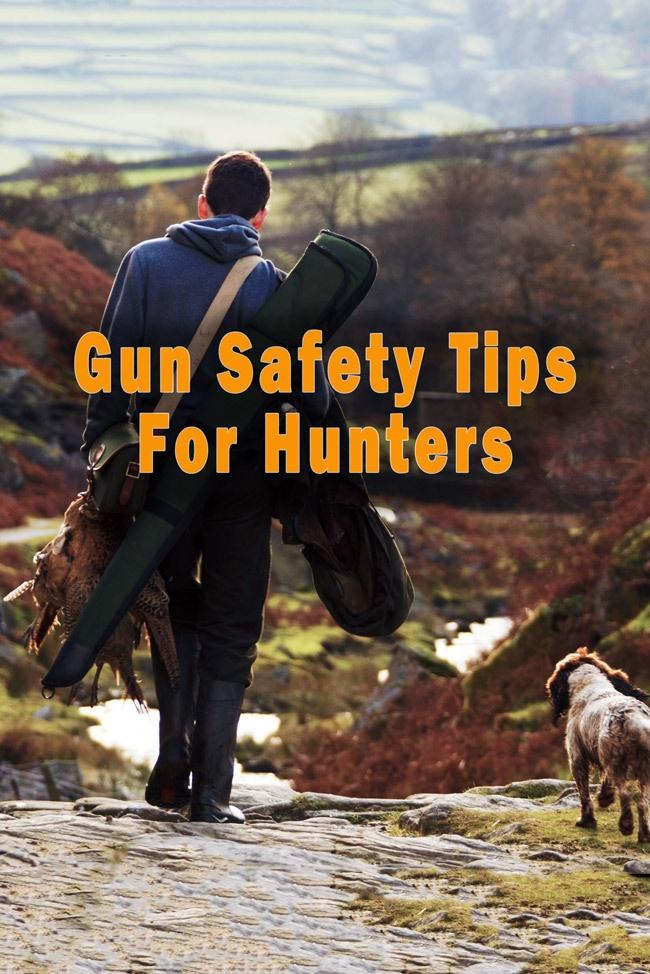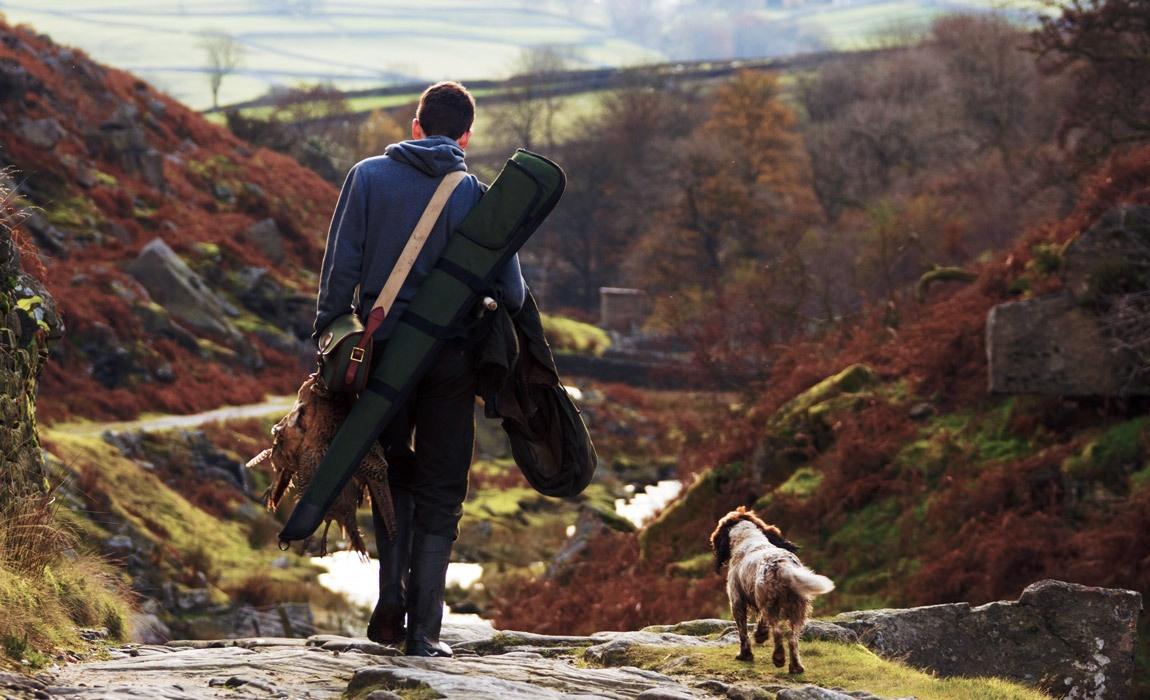Hunting season brings the thrill of pursuing game alongside fellow hunters, but seasoned sportsmen know that safety protocols separate successful outings from potential disasters. Whether you're heading to your hunting cabin with longtime buddies or joining a new group for weekend adventures, maintaining rigorous firearms safety ensures everyone returns home with great stories instead of emergency room visits.
What Do You Call Your "Guys Trips"?
- Establishes leadership credibility when hunting with new groups or less experienced hunters
- Protects substantial investments in quality firearms, equipment, and hunting cabin properties
- Ensures successful guys trips and hunting traditions continue for years without incident
- Demonstrates responsible ownership that supports hunting rights and community reputation
- Reduces liability concerns when hosting hunting parties at private properties or cabins
Firearm Handling Protocols for Group Hunts
Every firearm demands the same fundamental respect, regardless of your experience. A sobering reminder comes from Texas hunting incidents where experienced hunters suffered accidents due to momentary lapses in basic protocols - situations that emphasize why complacency remains the greatest threat to hunting safety.
Universal Handling Standards
Treat every gun as loaded, particularly when someone else hands it over during a hunting trip. Take time to safely inspect any firearm before proceeding, especially when trying different weapons or handling unfamiliar firearms. Don't hesitate to ask for assistance and a demo if you're handling someone else's weapon for the first time.
Check that barrel and action remain clear of obstructions before each use, particularly important when hunting in muddy or snowy conditions. Never point a weapon anywhere unless you intend to shoot, and avoid climbing fences or crossing ditches while carrying loaded firearms.
Advanced Group Handling Techniques
Watch the muzzle direction constantly, ensuring it points in safe directions even when navigating challenging terrain with hunting buddies. Control muzzle direction during stumbles or unexpected movements, which become more frequent during dawn and dusk hunting periods.
Expert-level muzzle control standards:
- Maintain awareness during fence crossings and creek navigation
- Establish "safe carry" positions when moving through thick cover with hunting partners
- Use proper hand-off techniques when sharing firearms during target practice sessions
- Implement buddy system checks during equipment changes at hunting cabins
Mandatory Protective Gear Requirements
Make wearing safety glasses and hearing protection a non-negotiable rule during every training or practice session. These items guard against discharge debris, hot casings, and permanent hearing damage - risks that experienced hunters face repeatedly over decades of shooting.

Equipment Selection and Target Practice Preparation
Quality equipment investment reflects serious commitment to both safety and hunting success. When purchasing firearms, whether new or evaluating second-hand guns, prioritize proven manufacturers and well-maintained weapons over bargain alternatives.
Target Practice Integration
Regular target practice maintains shooting proficiency while reinforcing safety habits under controlled conditions. Establish consistent practice routines before hunting season, particularly when planning extended trips to hunting cabins where shooting accuracy becomes crucial for quick, clean kills.
Use practice sessions to drill safety procedures with hunting partners, especially when integrating new group members during weekend trips. Practice provides opportunities to familiarize yourself with different firearms and test equipment modifications in safe environments.
Field Communication and Safety Protocols
Successful hunting groups establish clear communication protocols before entering the field. Pay attention to your target and everything beyond before pulling the trigger - a fundamental rule that requires constant reinforcement during group hunts.
Pre-Hunt Briefing Standards
Know your game species and rifle range capabilities, especially when hunting unfamiliar terrain around different hunting cabins or properties. Establish clear shooting zones with hunting partners and maintain visual contact when possible.
Essential pre-hunt briefing elements:
- Designated shooting lanes and boundary markers for each hunter's zone of fire
- Vocal signal systems for communication during active hunting periods
- Radio protocols and backup communication plans for extended-range hunts
- Emergency procedures and rally point locations near hunting cabin base camps
- Weather contingency plans affecting visibility and sound transmission
Visibility and Identification Requirements
Wear blaze orange or other high-visibility colors as required by local regulations. This significantly reduces the risk of misidentification, especially in dense cover or during dawn and dusk periods when most hunting accidents occur.
Terrain and Environmental Considerations
Ensure adequate backstops during both hunting and field scenarios. Never shoot at water or flat, hard surfaces, regardless of the situation. Weather conditions can significantly impact visibility and sound transmission, necessitating adjustments to communication strategies during extended stays in hunting cabins.
Firearm Storage and Transportation Guide
Proper storage and transportation protect both equipment investments and ensure consistent safety standards across all hunting scenarios.
Home Storage Protocols
Proper storage of firearms and ammunition remains mandatory while demonstrating responsible ownership to the hunting community. Storing guns securely at home between hunting seasons protects your investment and maintains weapon condition.
Storage Best Practices
Store firearms unloaded with ammunition separately in locked storage systems:
- Use climate-controlled environments preventing moisture damage and rust formation
- Maintain documentation systems tracking maintenance schedules and equipment modifications
- Control access limiting unauthorized handling by family members or visitors
- Document inventory for insurance and theft recovery purposes
Hunting Cabin Security Measures
Secure storage at hunting cabins requires particular attention since multiple hunters access shared spaces. Keep firearms and ammunition locked separately and away from unauthorized users, including visiting family members or guests.
Transportation safety standards:
- Unload firearms completely before transport and store in secure cases
- Handle guns by the stock rather than the barrel during loading and unloading
- Verify local transportation regulations when crossing state boundaries for hunting trips
- Maintain equipment logs for accountability during group hunting trips
Licensing and Legal Requirements
Most states mandate hunter education certification, with programs like Texas's system (implemented since 1988) showing dramatic reductions in fatal hunting incidents. Verify current licensing requirements and continuing education obligations in your hunting areas.
Stay current with local regulations affecting hunting seasons, weapon restrictions, and safety requirements that may impact your hunting cabin activities and group hunting plans.
Post-Hunt Gun Safety Protocols and Maintenance
Safety consciousness continues beyond successful hunts through proper equipment maintenance and responsible field behavior. Clean firearms promptly after hunting trips, particularly following wet weather or muddy conditions common during cabin-based hunts.
Maintain sobriety during hunting activities and avoid medications that impair vision, hearing, or motor skills. Stay alert to environmental sounds and movements, especially during dawn and dusk periods when wildlife activity peaks around hunting cabin locations.
Document equipment condition and address any maintenance needs before storing weapons. This systematic approach prevents equipment failures during future hunting trips while maintaining safety standards.
Experienced hunters understand that exceptional safety practices distinguish professional-level sportsmen from casual weekend enthusiasts. Rigorous protocols protect hunting party safety and equipment investments while ensuring continued access to exclusive hunting opportunities. Your commitment to advanced safety standards guarantees successful hunting cabin trips with longtime friends and builds confidence when joining new hunting groups, ultimately preserving hunting traditions for future generations.
